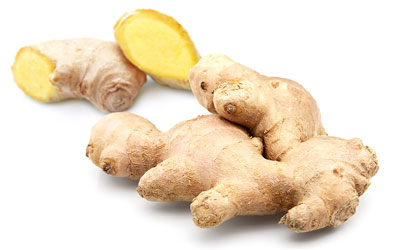Migraines are known to be a highly debilitating type of headaches. Since migraines cannot be cured, treatment is aimed at reducing symptoms and preventing subsequent episodes. This can be done, with varying success, with over-the-counter pain relievers, triptans, and antidepressants, among others.
The use of alternative medicine for treating body ailments, like migraines, has always been of the interest in science. In fact, previous research trials have already shed light on ginger's analgesic properties, mainly thanks to its gingerol content.1,2 However, more studies are needed to further explore these benefits.
The aim of the current trial was to determine whether ginger is beneficial for alleviating migraines.
The Study
This 2018 double-blind, placebo-controlled randomized clinical trial was conducted by researchers from the Department of Nutrition at the Federal University of Minas Gerais in Brazil. Their findings were published in the Sage Journals.
The recruits of this trial were 60 adults who came to the emergency department of the Vera Cruz Hospital (Brazil) due to moderate to severe migraines.
Because of local restrictions on the clinical trial set-up, all patients received 100 mg of ketoprofen intravenously. Additionally, half of them were given two capsules containing 250 mg of ginger extract each (20 mg gingerols), while the other half received the placebo capsules with cellulose.
Clinical examination and questionaries about migraine characteristics (i.e. Headache Impact Test, Migraine Disability Test, and Beck Depression Inventory) were carried out before as well as 30 minutes, 1 hour, 1.5 hours, and 2 hours after the administration of the medication and study capsules.
The Results
Patients receiving ketoprofen with ginger capsules reported lower scores for pain severity as soon as one hour after their administration. After two hours since administration, there were more pain-free patients in the ginger group than those taking the placebo capsules.
Additionally, ginger extract patients reported photophobia less frequently than the other group after 30 minutes and 1.5 hours.
73.1% of ginger extract patients reported full satisfaction with the treatment in comparison with 28.1% of the placebo group.
Overall, the ginger group had a much better response to the treatment and much greater pain reduction than the placebo group.
What Does this Mean?
These findings suggest that taking ginger for migraines along with anti-inflammatory medications can relieve the pain more effectively that medications alone.
Additional trials are needed to test the efficacy of ginger for migraine relief on its own, without the use of anti-inflammatory medications.
The strength of this study lies in the fact that researchers used a specific dose of gingerol, which can help formulate the most adequate ginger extract preparations for subsequent research studies.
Other herbs that may help relieve headaches and migraines are peppermint, lavender, linden, and dandelion.
Sources
- Sage Journals, Double-blind placebo-controlled randomized clinical trial of ginger (Zingiber officinale Rosc.) addition in migraine acute treatment, 2018
Footnotes:
- Phytotherapy Research. (2014). Comparison between the efficacy of ginger and sumatriptan in the ablative treatment of the common migraine. Retrieved September 14, 2020 from https://pubmed.ncbi.nlm.nih.gov/23657930/
- Dental Research Journal. (2017). Comparison of anti-inflammatory and analgesic effects of Ginger powder and Ibuprofen in postsurgical pain model: A randomized, double-blind, case-controlled clinical trial. Retrieved September 14, 2020 from https://www.ncbi.nlm.nih.gov/pmc/articles/PMC5356382/





